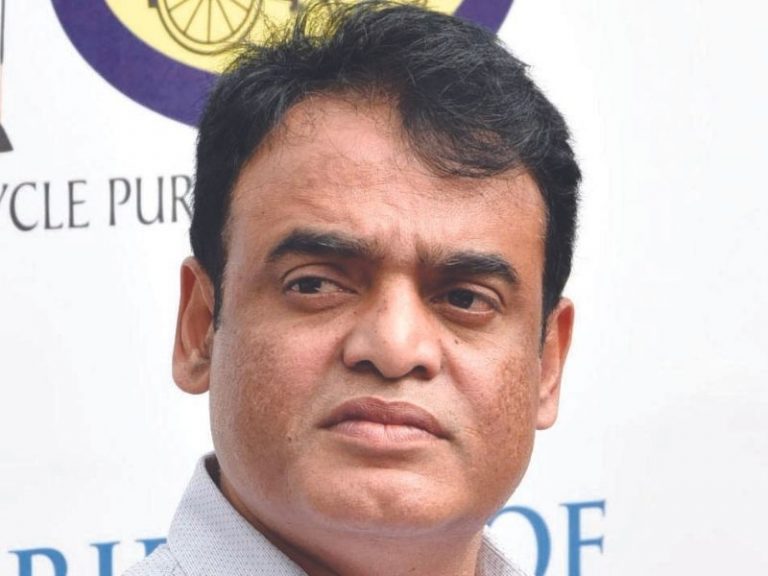No products in the cart.
Karnataka: Unwarranted haste
Reshma Ravishanker (Bengaluru)
 One year after the ambitious National Education Policy (NEP) 2020 was presented to the nation by prime minister Narendra Modi on July 29, 2020, the southern state of Karnataka (pop.68.4 million) has become the first countrywide to implement its higher education reform proposals.
One year after the ambitious National Education Policy (NEP) 2020 was presented to the nation by prime minister Narendra Modi on July 29, 2020, the southern state of Karnataka (pop.68.4 million) has become the first countrywide to implement its higher education reform proposals.
On August 7, the BJP state government issued a circular to 28 state and 19 private universities and 481 undergrad colleges to implement NEP 2020 in the current academic year 2021-22. Two weeks later on August 23, it announced that admissions into all higher education institutions statewide should be made under NEP 2020 guidelines.
Formulated after an interregnum of 34 years and crafted over four years following recommendations of two (TSR Subramaniam and K. Kasturirangan) committees, NEP 2020 decrees four-year undergad degree programmes with a foundational year of liberal arts learning for all streams; multiple certified exit and re-entry options and a system of credits to be stored in a national ABC (academic bank of credits) digital repository; phasing out the system of undergrad colleges affiliating with parent universities, and graded autonomy for undergrad colleges under a ‘light but tight’ regulatory framework. It also mandates establishment of a National Research Foundation and permitting top-ranked foreign universities to set up campuses in India.
Given this long list of prescribed reforms, the out-of-the-blue announcement of the BJP government in Karnataka to implement the radical NEP reforms in the current academic year which began in August, has taken the state’s academy by surprise with college and university managements totally unprepared to implement the new policy. While the state government has no doubt earned brownie points with the BJP leadership at the Centre for being first off the blocks, institutional managements are unprepared to implement the new undergrad admission guidelines.
Moreover, most of the state’s 481 undergrad colleges, which reopened for in-person classes in August, had already begun the admissions process in July and were forced to put it on hold after the government announced on August 7 that all admissions have to be made through a new Unified University and College Management System (UUCMS). Three days later, the government cancelled admissions under UUCMS because of “technical glitches” in the new hastily prepared software.
Knowledgeable academics in the state are amazed that NEP 2020, which calls for the constitution of 32 subject committees to prepare a new curriculum framework; mandates flexibility in subject selection across science, arts and commerce streams and switch to transferable academic credits-based system; multiple exit and entry points during the four-year undergrad study programme; and mandatory skill enhancement courses based on the National Skills Curriculum Framework, has been introduced at such short notice by the state government.
Comments Prof. A.S. Seetharamu, former professor of education at the Institute of Social and Economic Change (ISEC), Bengaluru and education advisor to the Karnataka government: “Implementing NEP 2020 requires detailed planning and preparedness. The majority of the state’s government and private colleges are small to medium-size and don’t have trained faculty and necessary infrastructure to introduce inter-disciplinary subjects and skill-enhancement courses. The government should have consulted experienced academics and institutional managements before implementing the new policy. Moreover, the cost of implementation has not been discussed at all. What budget has the government allocated for NEP implementation and will private colleges be allowed to raise student fees to fund new initiatives?”
However Dr. C.N. Ashwath Narayan, the state’s higher education minister, dismisses such criticism as “unwarranted pessimism”. According to him, last year the state government conducted a pilot NEP implementation project in 270 polytechnic colleges and the response was “overwhelming”. “I fail to understand why NEP implementation has taken college managements and faculty by surprise. We have been preparing since last year and the success of our NEP pilot in 270 polytechnic colleges prompted us to expand it statewide. The objective of NEP 2020 is to upgrade higher ed curriculums and prepare our graduates for employment in a rapidly evolving 21st century economy. If there are teething problems during the first year, we will overcome them keeping students’ best interests in mind,” says Ashwath Narayan, a graduate of the Kasturba Medical College, Manipal and Karnataka’s former deputy chief minister.
Coincidently, Karnataka’s next legislative election is due to be held within the next 15 months. Academics in Bengaluru — Karnataka’s admin capital — believe that the BJP’s haste to implement NEP 2020 is not unconnected with this schedule.
Also Read:Maharashtra: Reopening back & forth
















Add comment